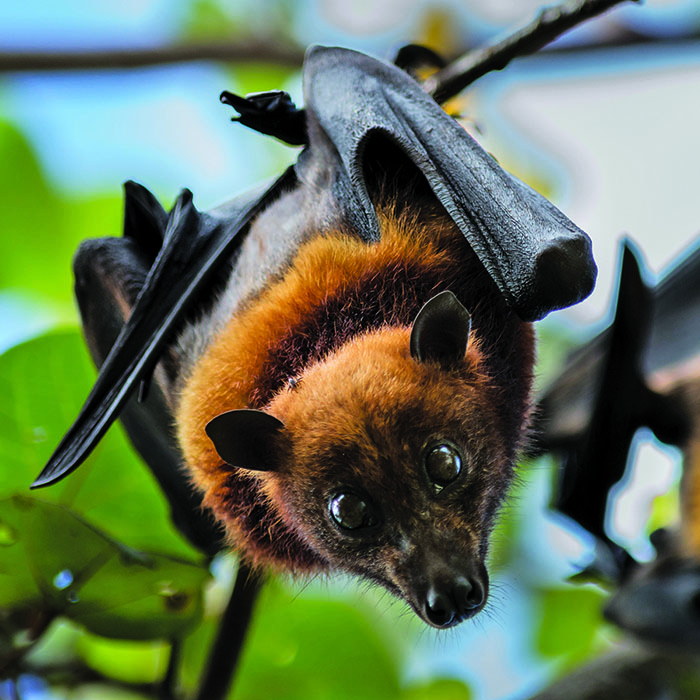Research
Searching for Solutions for the Public Good
TU research is breaking new ground and complementing current knowledge.

Going batty
Costa Rican biologist Jorge D. Carballo Morales ’25, who began his research at TU in 2023 in the master’s biology program, is a student in the lab of assistant professor Daniel Caetano, Ph.D. Carballo Morales is studying the macroevolution of bat families and how their diets play a role in their evolution and contribute to various ecosystems.
Bats are so important, and we take them for granted. They are essential seed dispersers in the tropics and ensure the continuity of forests.
Jorge D. Carballo Morales ’25
Under Caetano’s wing, Carballo Morales is learning how to apply statistical methods to his data collection on bat diets. To better understand bat diversification, Carballo Morales is working through 3,000 rows of existing data to make reconstructions of bat diets from when bats first appeared more than 50 million years ago to the present day. Studying the evolution of bat diets is key to understanding how these essential seed dispersers support forest ecosystems.
Searching cells for solutions
Biology professor Elana Ehrlich, Ph.D., is using her third grant from the National Institutes of Health to study Kaposi’s sarcoma herpesvirus (KSHV), an infection associated with HIV/AIDS.
Her research seeks to determine how and why KSHV hijacks the cellular protein degradation system to evade the immune system and promote viral replication. By identifying proteins targeted for degradation by the virus, Ehrlich hopes to identify new drug targets.
From an undergraduate training perspective, for students to have real-world research experience can be life changing.
Elana Ehrlich, Ph.D., biology professor
Ehrlich is working with nine undergraduate students to test how drugs target the “tagged for trash” proteins, impact the replication of the virus and play a role in whether the virus remains latent or could infect other cells.

Mobility and migration
Associate professor Maria João Lobo Antunes, Ph.D., is exploring the impacts of intracity residential mobility on deviant behaviors and victimization among minority and immigrant youth.
With her background as a quantitative criminologist, Antunes has identified the need to examine how inner-city and intracity moving influences minority and immigrant youths’ experiences with perpetrated or experienced violence.
I like to inform my teaching with my research, and I like my research to be informed by my teaching.
Maria João Lobo Antunes, Ph.D., Associate Professor
Antunes is expanding her research on “crimmigration”—the merging of immigration and the legal system—with the support of the W.E.B. Du Bois grant from the National Institute of Justice and connecting it to the classroom through a special topics course, Immigrants, Crime and Justice.
About the researchers